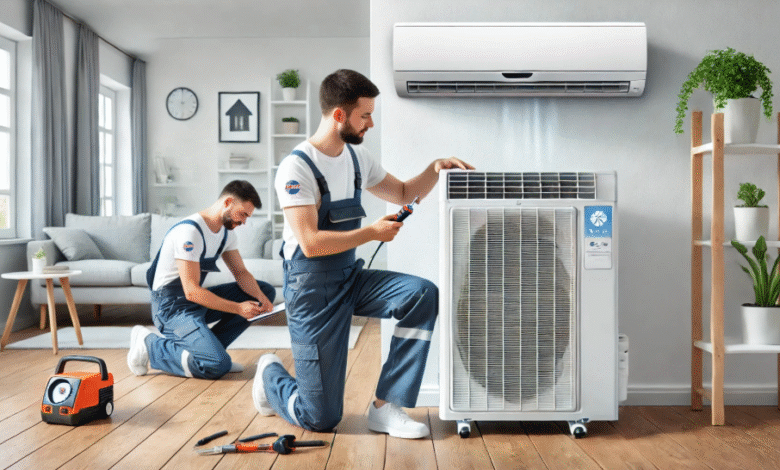Why Regular HVAC Maintenance Saves You Money and Energy

Your heating, ventilation, and air conditioning system works tirelessly to keep your home comfortable year-round. Yet most homeowners neglect this hardworking equipment until something goes wrong. Regular HVAC maintenance isn’t just about preventing breakdowns—it’s a smart financial strategy that reduces energy bills, extends equipment life, and prevents costly emergency repairs.
Understanding how routine maintenance impacts your wallet and energy consumption helps you make informed decisions about your home’s comfort systems. The benefits extend far beyond basic functionality, creating lasting value for your household budget.
Lower Energy Bills Through Improved Efficiency
How Dirty Systems Waste Energy
When HVAC components become dirty or clogged, your system works harder to maintain comfortable temperatures. Dust accumulation on coils forces the unit to run longer cycles, while dirty air filters restrict airflow and increase energy consumption. These seemingly minor issues can increase your energy bills by 15-30% over time.
Clean systems operate at peak efficiency, using less electricity or gas to achieve the same comfort levels. Regular maintenance ensures all components function as designed, minimizing energy waste and keeping monthly utility costs in check.
Optimal Performance Through Professional Tuning
During maintenance visits, technicians adjust system settings, calibrate thermostats, and optimize performance parameters. These adjustments ensure your HVAC system operates at manufacturer specifications, delivering maximum efficiency while using minimum energy.
Professional technicians also inspect and clean critical components like evaporator coils, condenser coils, and blower motors. Clean components transfer heat more effectively, reducing the energy required to heat or cool your home.
Preventing Expensive Repairs and Replacements
Early Problem Detection Saves Money
Regular maintenance allows technicians to identify potential issues before they become major problems. A small refrigerant leak caught early might cost $150 to repair, while the same leak left untreated could lead to compressor failure costing thousands of dollars.
Worn belts, loose connections, and minor component issues are easily addressed during routine maintenance calls. These proactive repairs cost significantly less than emergency service calls or major component replacements.
Extended Equipment Lifespan
Well-maintained HVAC systems typically last 15-20 years, while neglected units often fail within 8-12 years. The difference in lifespan directly translates to thousands of dollars in replacement costs. Regular maintenance protects your investment by ensuring all components operate within normal parameters.
Proper lubrication, cleaning, and adjustments reduce wear and tear on moving parts. This preventive approach minimizes stress on critical components like compressors, motors, and fans, extending their operational life significantly.
See also: Smart Home DecorAdTech: Innovations in Home Automation
Improved Indoor Air Quality and Health Benefits
Cleaner Air Reduces Health Costs
Regular maintenance includes replacing air filters and cleaning ductwork, which improves indoor air quality and reduces allergens, dust, and pollutants. Better air quality means fewer respiratory issues, allergies, and related medical expenses for your family.
Clean HVAC systems also prevent mold growth and eliminate musty odors that can develop in neglected units. These improvements create a healthier living environment while avoiding potential remediation costs.
Enhanced Comfort and Productivity
Properly maintained systems provide consistent temperatures and humidity levels throughout your home. This improved comfort can increase productivity for those working from home and reduce the need for supplemental heating or cooling devices that consume additional energy.
Maintaining Peak Airflow and Distribution
Ductwork Inspection and Optimization
Maintenance includes inspecting ductwork for leaks, damage, and obstructions that reduce system efficiency. Technicians check connections, seal leaks, and ensure proper airflow throughout your home’s distribution system.
Proper airflow optimization may involve adjusting turning vanes within ductwork to minimize turbulence and improve air distribution efficiency. These adjustments ensure conditioned air reaches all areas of your home effectively, reducing hot and cold spots while maintaining overall system efficiency.
Blower Motor and Fan Maintenance
Regular cleaning and lubrication of blower motors and fans ensure optimal airflow throughout your HVAC system. Clean, well-maintained fans move air more efficiently, reducing energy consumption while maintaining comfort levels.
Smart Maintenance Scheduling for Maximum Benefits
Seasonal Preparation Strategies
Schedule maintenance before peak heating and cooling seasons to ensure your system operates efficiently when you need it most. Spring maintenance prepares your air conditioning for summer demands, while fall maintenance ensures your heating system is ready for winter weather.
This proactive approach prevents system failures during extreme weather when repair costs are highest and emergency service calls are most expensive.
Cost-Effective Maintenance Plans
Many HVAC companies offer maintenance agreements that provide regular service at discounted rates. These plans typically include priority service, reduced repair costs, and comprehensive system inspections that identify potential problems early.
Maintenance agreements spread costs over time while ensuring your system receives consistent care. The predictable expense structure helps with budgeting while protecting against unexpected repair costs.
Return on Investment Analysis
Calculating Maintenance Value
Regular maintenance typically costs $100-200 annually but can save hundreds or thousands in energy costs and repair expenses. The average homeowner saves 5-15% on energy bills through proper maintenance, while avoiding major repairs that can cost $1,000-5,000.
Over a system’s lifetime, maintenance costs represent a small fraction of potential savings. The return on investment for regular maintenance often exceeds 300-500%, making it one of the most cost-effective home improvement strategies available.
Taking Action for Long-Term Savings
Regular HVAC maintenance represents a small investment that yields significant returns through lower energy bills, fewer repairs, and extended equipment life. The cumulative savings over time far exceed the cost of routine service, making maintenance an essential part of responsible homeownership.
Don’t wait for problems to develop. Schedule regular maintenance today to start realizing these financial and energy benefits while ensuring your home stays comfortable year-round.




